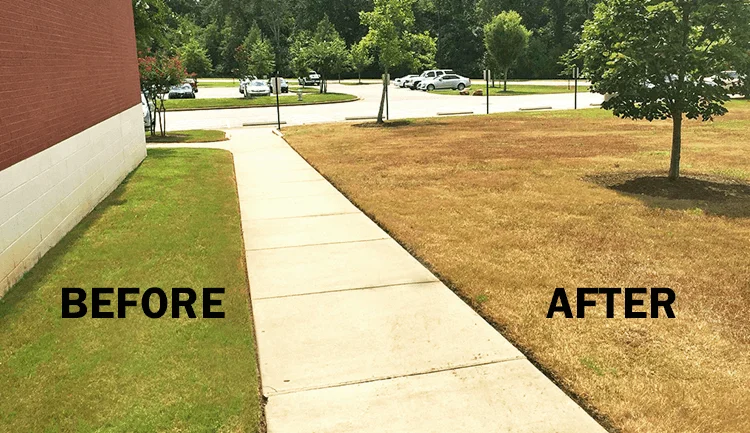Repair Your Lawn After Army Worms

If your grass is starting to unexpectedly disappear or turn brown in certain areas, there’s a good chance your property has been taken over by an army – of larvae!
Mainly found in the southern regions of the United States, armyworms are destructive landscaping pests at the larval (caterpillar) life stage of an armyworm moth. They get their name by marching across and terrorizing turf in what looks like a small army. After consuming all of the grass in an area and exhausting their food supply, the infestations move along to their next available food source and leave behind unattractive leftovers–if they leave any grass leftover at all!
You may first notice the presence of armyworms as you notice a brown patch in your grass that continues to increase in size every day – or you may walk out one morning to find no grass at all! In typical cases, grass blades will appear “eaten” and ragged along the edges, however, in the case of severe infestation, armyworms may eat grass blades all the way down to the soil. Unfortunately, armyworms can be very difficult to detect or follow due to their habits of hiding during the day and migrating to new feeding areas during the night. Plus, the adult moth can lay up to 2,000 eggs on a property at once. If not detected early enough, large infestations can hatch and completely defoliate an entire property in only a few days!
Key Points To Know:
- Armyworms can infest your property even if you have an active IMP (integrated pest management) solution.
- If you think you have an infestation, treat your lawn with armyworm targeted insecticide as soon as possible! Treatment time should be when the armyworms are most active, late in the evening and/or early in the morning. Liquid insecticides are best.
- After you’ve applied your insecticide treatments, we recommend applying starter fertilizer to your lawn the next day. Continue to water your lawn each morning for several days to promote a healthy recovery.
- In most cases, the long-term health of grass is usually not affected and the grass will recover with proper care. However, in the case of a severe case of armyworms that were not detected and treated early enough, overseeding and/or re-sodding may be needed in order to repair the damage.
If you think your property might be under an attack of armyworms, contact us today! We can help detect the infestation and restore your property’s landscaping back to good health before it’s too late.





































